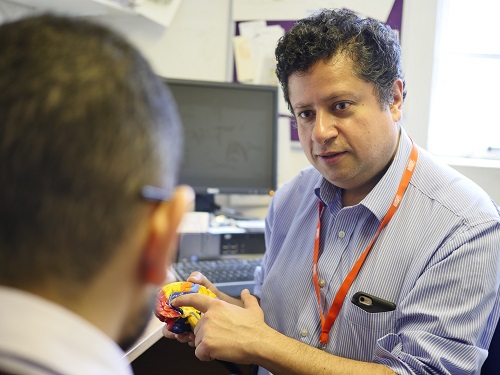Brain tumour treatments for adults
Adult brain tumour treatments can include neurosurgery, radiotherapy and chemotherapy. Here we’ll take a closer look at brain tumour treatments for adults.
Use these pages as a guide to learn more about the types of treatment and what questions to ask your health team.
And, if you need more information or just a person to talk to, we’re here for you. Please get in touch with our kind and friendly support team.

Neurosurgery
Learn about the types of surgery you may have and why surgery is not possible for everyone.

Radiotherapy
Find out why radiotherapy may be used and what to expect during treatment.

Chemotherapy
Find our how chemotherapy drugs destroy tumour cells by disturbing their growth.

Steroids
Get information about why and when steroids are given and the side-effects.

Watch and wait
Sometimes no initial treatment is given – learn why and get tips on how to cope.

Stereotactic Radiotherapy
Stereotactic radiotherapy is a brain tumour treatment which uses 3D scans to direct radiotherapy treatment.

Palliative care
Find out more about what to expect when receiving palliative care.

Emerging treatments
Read more about brain tumour treatments in currently in development.

Side effects of treatment
Find out about the side effects of different adult brain tumour treatments and how to cope.

Make the right choices for you
Our Step by Step interactive guide outlines what happens following a diagnosis, to answer your questions and help you to understand what to expect.
Understanding brain tumour treatments for adults
If you have been diagnosed with a brain tumour, it can be a scary time. You will be given lots of information by the doctors about various treatment options. Some of this can be confusing and difficult to comprehend when you are in a state of shock.
Use the information above to learn more about the various brain tumour treatments for adults. The pages explain the different types of treatment, how they work, the procedures and what to expect, and possible side-effects, both short-term and long-term. They are designed to help you to decide what questions to ask your health team and help you make informed decisions about your brain tumour treatment.